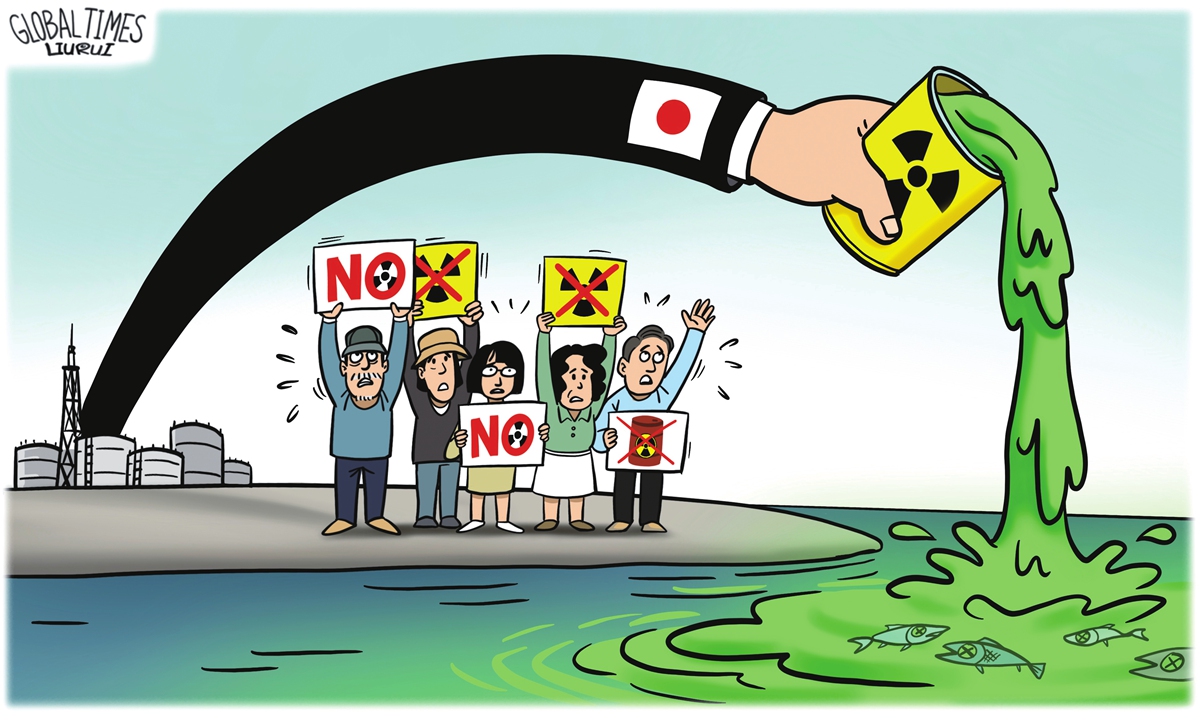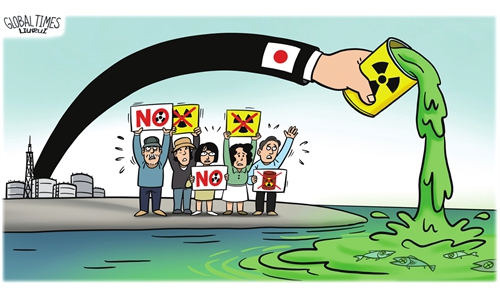Japan urged to face up to legitimate intl concerns on dumping nuclear-contaminated water into ocean

Japan's dangerous move.Illustration:Liu Rui/GT
Japan was urged to face up to the legitimate concerns of the international community on dumping nuclear-contaminated water into ocean at the 53rd session of the United Nations Human Rights Council on Thursday. Japan's moves are passing on the risk of nuclear pollution to all mankind that are seriously endangering the right to health of people of all countries, the Chinese representative to the council said.
The Chinese representative said that Japan's dumping of nuclear-contaminated water into the sea violated its obligations under the United Nations Convention on the Law of the Sea and Japan has so far failed to prove that the dumping of nuclear-contaminated water into the sea is safe and sound. The data released by Japan itself also shows that nearly 70 percent of the treated nuclear-contaminated water still fail to meet the standards.
The dumping plan is not the only way to deal with the Fukushima nuclear-contaminated water, nor is it the safest and most optimal means of disposal. However, the Japanese side chose to discharge the nuclear-contaminated water into the ocean based on economic cost, and in doing so is passing on the risk of nuclear pollution to all mankind, and is seriously endangering the right to health of people of all countries.
The Chinese representative pointed out that Japan has not followed the principle of consultation on the dumping plan of nuclear-contaminated water, and has repeatedly tried to mislead the international community, trying to cover up the uncertain risks of nuclear-contaminated water dumped into the sea under the disguise of "treated water."
A few days ago, regardless of strong opposition at home and abroad, Japan forcibly started trial operation of nuclear-contaminated water discharge equipment, which is another step toward unilaterally forcibly dumping the nuclear-contaminated water into the ocean, the Chinese representative noted.
If Japan really has the sincerity to negotiate, it should announce the suspension of sea dumping plan, allow stakeholders such as Japan's neighboring countries and Pacific Islands countries to conduct independent sampling and analysis of the nuclear-contaminated water, and agree to explore all possible disposal options other than sea discharge. If the nuclear-contaminated water is as safe as Japan claims, Japan should choose to dispose of it domestically instead of passing on the risk to Pacific countries, according to the Chinese representative.
The Chinese representative emphasized that the Japanese government's decision to dump the water polluted by the Fukushima nuclear accident into the ocean is related to the safety of the global ecological environment and the right to health of the people of all countries.
This is not a matter for Japan alone. The Japanese side must face up to the strong opposition voices at home and abroad and the reasonable concerns of the international community, honestly fulfill its international obligations, and dispose of the nuclear-contaminated water in an open, transparent, and safest way, so as not to cause irreversible consequence, the representative noted.
Global Times


